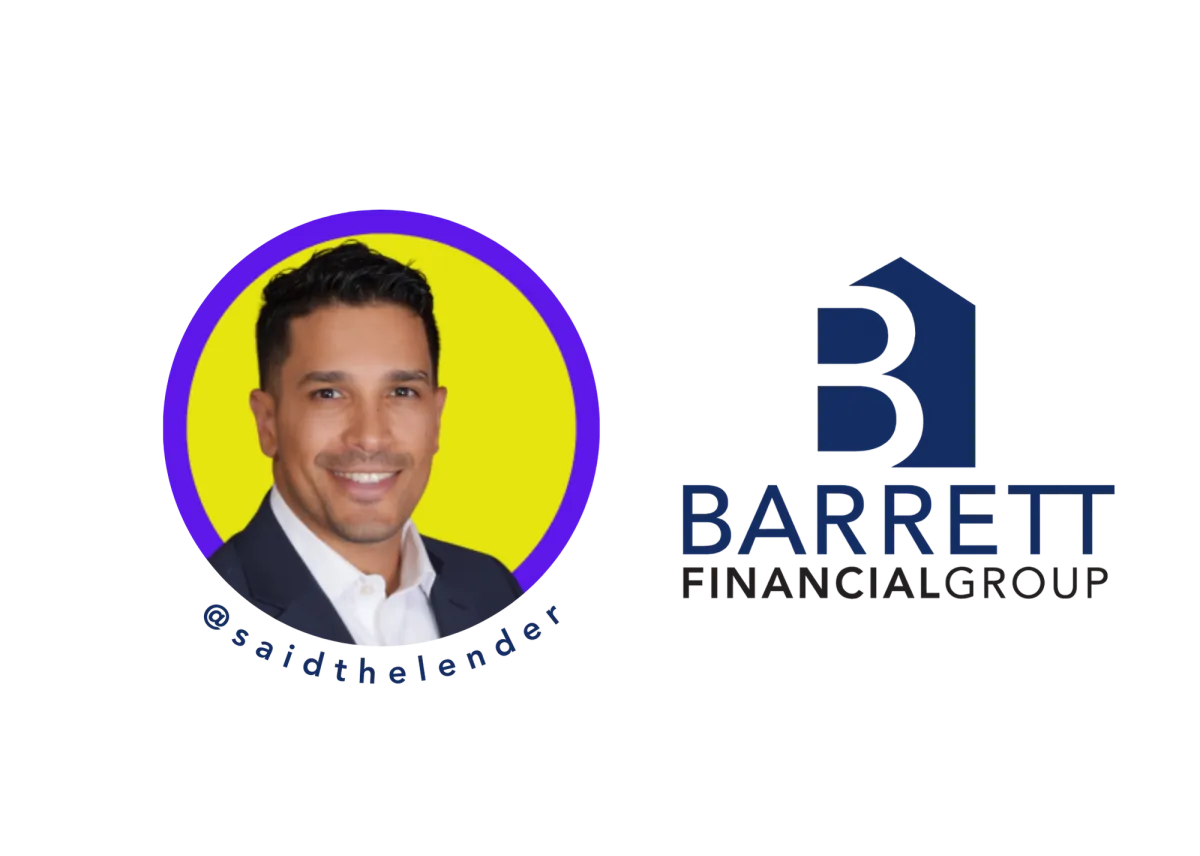
Simplifying Homeownership
See EXACTLY How Much Home You Qualify For Today!

Simplifying Homeownership
See EXACTLY How Much Home You Qualify For Today!
Learning Center

Navigating the Economic Shifts: What Powell's Speech Means for Seattle Homebuyers and Mortgage Brokers
This is a pivotal moment for homebuyers and mortgage brokers in Seattle, Washington, as the potential for interest rate cuts is now on the horizon. Understanding these developments is crucial for anyone looking to buy a home or refinance in the Seattle area.
A Shift in Federal Reserve Policy
Powell’s speech marked a turning point in the Federal Reserve's approach to monetary policy. After a series of aggressive interest rate hikes designed to combat inflation, Powell indicated that the time has come for the Fed to adjust its policies. He emphasized that while the exact timing and extent of rate cuts remain uncertain, the overall direction is clear: rate cuts are likely on the way.
For the Seattle housing market, this is particularly significant. Seattle is known for its high home prices, and even small changes in interest rates can have a substantial impact on affordability. Lower rates could open up opportunities for first-time homebuyers and those looking to refinance their existing mortgages.
Progress on Inflation and Employment
Powell’s speech highlighted the progress made in bringing inflation down. The inflation rate has been steadily decreasing, approaching the Fed's 2% target, though it hasn't quite reached that point yet. This progress is crucial because it allows the Fed to shift its focus from strictly controlling inflation to also ensuring that the labor market remains strong.
In Seattle, where the tech industry plays a significant role in the local economy, a stable labor market is essential. A strong employment rate means more people can afford to buy homes, which could help sustain demand in the housing market, even as other economic conditions fluctuate.
What This Means for Seattle's Mortgage Brokers
For mortgage brokers in Seattle, these developments mean it's time to prepare for a potentially busy period ahead. As interest rates begin to decline, more homeowners may seek to refinance, and first-time buyers may find it easier to enter the market. Brokers who stay informed and proactive will be best positioned to help their clients navigate these changes.
Additionally, with Seattle’s unique housing challenges, such as high property prices and limited inventory, mortgage brokers will need to offer strategic advice tailored to their clients' specific needs. This might include discussing different loan products, potential rate lock strategies, or the timing of a home purchase or refinance.
Custom HTML/CSS/JAVASCRIPTPotential Challenges Ahead
While Powell’s speech was optimistic, he also acknowledged that there are still risks. The economy is not entirely out of the woods, and factors such as global economic conditions, supply chain disruptions, or unexpected inflationary pressures could complicate the Fed’s plans.
For Seattle's housing market, these uncertainties mean that buyers and brokers alike should stay flexible. It's important to have contingency plans in place and to be ready to adapt to changing conditions.
The Seattle Housing Market in 2024
As we look ahead, the potential for lower interest rates offers a silver lining for the Seattle housing market. With high home prices being a major barrier to entry for many first-time buyers, any decrease in borrowing costs could make a significant difference. Additionally, for current homeowners, refinancing at a lower rate could provide much-needed financial relief.
However, it’s important to remember that the Seattle market is competitive. Buyers will need to be well-prepared, and working with an experienced mortgage broker can make all the difference in securing the best possible terms.
Conclusion
Jerome Powell’s Jackson Hole speech signals a new phase for the Federal Reserve’s monetary policy, with potential rate cuts on the horizon. For Seattle homebuyers and mortgage brokers, this could bring opportunities for more affordable housing options and increased market activity. However, it’s crucial to remain vigilant and adaptable, as economic conditions can change rapidly.
As always, staying informed and working with knowledgeable professionals will be key to navigating these economic shifts successfully. Whether you’re a first-time buyer looking to enter the market or a current homeowner considering refinancing, the coming months could offer significant opportunities in Seattle's housing market.
For further reading and to stay updated on these developments, check out the original article that inspired this discussion: Federal Reserve Chair Powell Indicates Interest Rate Cuts Ahead.
What is the first step in buying a home?
The first step is understanding your budget and getting pre-approved for a mortgage. This helps you know what you can afford and shows sellers that you're a serious buyer. I can guide you through this process to make sure you're prepared and confident.

How much money do I need for a down payment?
Down payments typically range from 3% to 20% of the home’s purchase price, depending on the type of loan you qualify for. There are also programs for first-time homebuyers that may offer down payment assistance. I can help you explore your options.

What does pre-approval mean, and why is it important?
Pre-approval means a lender has evaluated your financial information and determined the loan amount you're eligible for. It’s crucial because it gives you a clear idea of your budget, helps you compete with other buyers, and speeds up the closing process once you find a home.

What types of loans are available for first-time homebuyers?
There are several loan options, including FHA loans, USDA loans, and conventional loans. The best option for you depends on factors like your credit score, income, and the location of the home. I can help you compare the options and choose the best one for your situation.

How do I know if I qualify for a mortgage?
Lenders look at factors like your credit score, income, debt-to-income ratio, and the amount of money you have for a down payment. The good news is that I work with a range of clients, from those with perfect credit to first-time buyers, to help you find the right path to homeownership.

What are closing costs, and how much should I expect to pay?
Closing costs usually range from 2% to 5% of the home's purchase price and cover fees like appraisals, inspections, and lender charges. I’ll help you understand all the costs involved so there are no surprises at the end of the process.

Can I get a mortgage if I have student loans or other debt?
Yes! Many buyers with student loans or other forms of debt still qualify for a mortgage. Lenders look at your overall financial picture, including your income and debt-to-income ratio. Let’s talk through your situation, and I’ll help you find the best solution.

How long does the home buying process take?
The process typically takes about 21 to 45 days from the time you make an offer to closing. However, this can vary depending on factors like inspections, appraisals, and the lender's processing time. I’ll keep you updated every step of the way so you know what to expect.

What happens if my offer on a home is accepted?
Once your offer is accepted, the next steps include signing a purchase agreement, scheduling inspections, and finalizing your mortgage application. From there, the lender will process your loan, and we'll work together to ensure everything is in place for a smooth closing.

How do I know if I’m ready to buy a home?
If you’re financially stable, have a reliable income, and can afford a down payment and monthly mortgage payments, you might be ready. I’ll help you assess your financial readiness and guide you through the process to ensure you’re making the best decision for your future.

What is an FHA loan?
An FHA loan is a government-backed mortgage designed to help first-time homebuyers and those with less-than-perfect credit. It typically requires a lower down payment (as low as 3.5%) and has more flexible credit requirements, making it an excellent option for those who might not qualify for conventional loans.

What is a VA loan, and who qualifies?
A VA loan is a mortgage loan backed by the U.S. Department of Veterans Affairs, designed for military service members, veterans, and certain members of the National Guard and Reserves. It typically requires no down payment or private mortgage insurance (PMI), making it a great option for those who qualify.

What is a USDA loan?
A USDA loan is a government-backed mortgage offered to homebuyers in rural and suburban areas. It requires no down payment and offers competitive interest rates. To qualify, buyers need to meet income and property location requirements, making it a great option for those looking to buy in rural areas.

What is a conventional loan?
A conventional loan is a mortgage that is not insured or backed by the federal government. These loans usually require a higher credit score and a larger down payment than FHA loans, but they come with more flexible terms and potentially lower mortgage insurance costs if you put down at least 20%.

What is a jumbo loan?
A jumbo loan is a type of mortgage that exceeds the conforming loan limits set by the Federal Housing Finance Agency (FHFA). These loans are typically used for luxury or high-value homes and require stricter credit and income qualifications. They also tend to have higher interest rates due to the larger loan amounts.

What is a fixed-rate mortgage?
A fixed-rate mortgage is a loan with an interest rate that stays the same throughout the life of the loan, typically 15, 20, or 30 years. This provides stability and predictable monthly payments, making it a popular choice for many homebuyers.

What is an adjustable-rate mortgage (ARM)?
An adjustable-rate mortgage (ARM) is a type of loan where the interest rate can change periodically based on market conditions. ARMs typically start with lower rates for the first few years and then adjust. While this can offer lower initial payments, it comes with more risk as rates can increase over time.

What is a renovation loan?
A renovation loan, like the FHA 203(k) loan, allows you to finance both the purchase of a home and the cost of repairs or renovations in one loan. This can be a great option if you want to buy a fixer-upper and make improvements to it, as it allows you to finance the project upfront.


"I educate first-time homebuyers so they can make informed decisions"
Said Hamood - Seattle Mortgage Broker - NMLS#1827048
Said Hamood | NMLS #1827048 | Barrett Financial Group, L.L.C. | NMLS #181106 | 275 E Rivulon Blvd, Suite 200, Gilbert, AZ 85297 | TX view complaint policy at www.barrettfinancial.com/texas-complaint | WA MB-181106 | Equal Housing Opportunity | This is not a commitment to lend. *All loans are subject to credit approval. | mlsconsumeraccess.org/EntityDetails.aspx/COMPANY/181106




